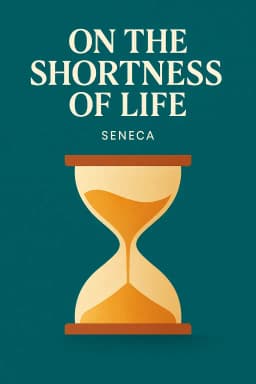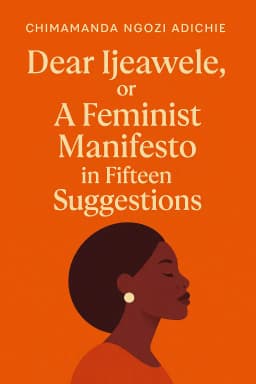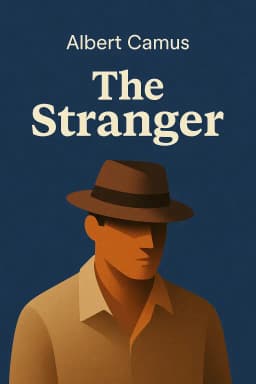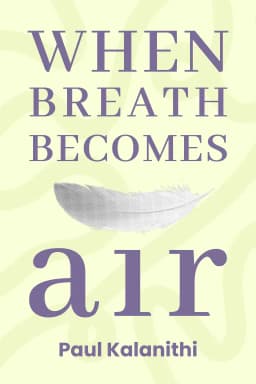
The Great Time Heist
Golden Hook & Introduction
SECTION
Michael: The average person has about 4,000 weeks on this planet. If you’re 30, you’ve already used up 1,500 of them. The terrifying part isn't the number, it's how many of those remaining weeks we'll willingly give away for free. Kevin: Wow, okay, no warming up today, just straight into the existential dread. 4,000 weeks. When you put it like that, it sounds shockingly short. It feels like I waste a whole week just deciding what to watch on TV. Michael: That feeling is exactly what the Roman philosopher Seneca was writing about nearly 2,000 years ago in his famous essay, On the Shortness of Life. Kevin: Seneca... wasn't he the guy who was super rich and tutored the infamous Emperor Nero? Seems like an odd person to be giving advice on living a simple life. Michael: Exactly! And that's what makes him so fascinating. He was a Stoic philosopher wrestling with these ideas from inside the corridors of immense power and corruption. He wasn't an academic in an ivory tower; he was in the thick of it, which gives his words a unique weight. He saw firsthand how the most powerful people in the world were often the most enslaved. Kevin: Huh. So he had a front-row seat to the lifestyles of the rich and miserable. That actually makes me more interested. It’s one thing for a monk on a mountain to preach simplicity, it’s another for the guy advising a tyrant. Michael: Precisely. And his core argument is a direct challenge to every single one of us, then and now. He opens with a bombshell that has echoed for centuries.
The Great Time Heist: Why We Feel Life is Short
SECTION
Michael: He says, and this is the quote that underpins everything, "It is not that we have a short time to live, but that we waste a lot of it." He completely flips the script. The problem isn't our mortal lifespan; it's our management of it. Kevin: I can see how that would be a controversial take. It’s so much easier to blame nature or fate for our lack of time than to blame ourselves. So what does he mean by 'wasting' it? Is he just talking about being lazy? Michael: Not at all. In fact, he’s often talking about the opposite. He describes a class of people he calls "the preoccupied." These are the busiest people you know. They are constantly in motion, managing other people's affairs, chasing promotions, embroiled in lawsuits, or planning their next vacation. They are busy with everything except their own lives. Kevin: That sounds eerily familiar. It’s the person whose calendar is a solid block of color, who runs from meeting to meeting, but if you ask them if they’re happy, they just look tired. It’s the modern cult of busyness. Michael: It is. Seneca saw it all around him. He says we are frugal with our money and property, we guard it jealously. But when it comes to our time, which is the one thing we can never get back, we are incredibly wasteful. We let anyone and everyone steal it from us—a demanding boss, a boring social obligation, a pointless argument. Kevin: Okay, so give me an example. Who are these time-thieves in Seneca’s world? Michael: His most powerful example is the Emperor Augustus. This was the most powerful man on the planet. He ruled a vast empire, he brought peace after decades of civil war—by all accounts, a man of immense achievement. Yet, Seneca tells us that throughout his entire life, Augustus constantly prayed for and dreamed of one thing: leisure. He longed for the day he could retire from his duties. Kevin: The guy who had everything just wanted a day off? Michael: More than that. He wanted his life back. In his letters to the Senate, he would promise himself this future rest, this "honorable leisure," but it was always just over the horizon. He was so preoccupied with the duties of the empire—fighting wars, putting down conspiracies, even dealing with his own daughter's scandals—that he never actually got to live for himself. He ruled the world, but he wasn't the master of his own time. He died still in office. Kevin: That’s a chilling story. It means that even the most 'important' work can be the very thing that’s stealing your life. It’s not about being unproductive; it’s about being preoccupied. I remember reading that Cicero, another famous Roman, called himself a 'semi-prisoner' in his own home because he was so entangled in politics. Michael: Exactly. You're a prisoner of your own obligations. And Seneca has this brutal line for this kind of thinking, for the person who is always saying, "I'll be happy when I retire," or "I'll travel when the kids are grown." He says, "Putting things off is the biggest waste of life: it snatches away each day as it comes, and denies us the present by promising the future." Kevin: Oh, man. That one hurts. The 'I'll be happy when...' syndrome. That's a trap almost everyone falls into. We live in a hypothetical future instead of the actual present. Michael: And he has another story that’s almost darkly comical. It’s about an old man named Sextus Turannius. He was a diligent, hardworking administrator who, at the age of ninety, was finally granted retirement by the emperor. Kevin: Ninety! I hope he enjoyed it. Michael: He hated it. He was so lost without his work that he ordered his servants to lay him out on his bed and mourn for him as if he were dead. The whole household had to pretend to grieve his 'leisure.' The mourning only stopped when his job was given back to him. Kevin: That's... incredibly sad. He was so identified with his job, with being preoccupied, that a life of freedom felt like death. His purpose was entirely external. When that was gone, he felt he had nothing. Michael: Seneca’s point is that this is the ultimate tragedy. To work your whole life for a future you don't know how to live. You spend all your time making a living, and you forget to make a life. He says we live as if we're immortal, never thinking about our own frailty, squandering time as if we have an infinite supply. Then, when we get old or sick, we're shocked to find that the life we never really lived is suddenly over.
The Antidote: How to Live a 'Long' Life
SECTION
Kevin: Okay, so we're all guilty. We're preoccupied, we procrastinate, we let people steal our time. It's a bleak diagnosis. What's the antidote? How do we actually live a 'long' life according to Seneca? Michael: This is where his philosophy gets really practical and, I think, turns our modern ideas upside down. The antidote is to cultivate true leisure. Kevin: Yeah, when I hear 'leisure,' I think of binge-watching a show or scrolling on my phone for two hours. I have a feeling Seneca would not approve. Michael: He would call that 'busy idleness' or 'unoccupied occupation.' It’s just another form of distraction. For Seneca, true leisure is an active state. It is the time we consciously dedicate to philosophy—to understanding ourselves, our place in the world, and how to live well. Kevin: Hold on. 'Philosophy' sounds intimidating. Does he mean we all need to go get PhDs and read Plato before bed? What does that look like for a normal person who's just trying to get through the week? Michael: That’s the key question. For Seneca, it’s not about academic credentials. It’s about the deliberate act of stepping back from the chaos of daily life to engage with the big questions. It’s reading, it’s reflection, it’s journaling, it’s having deep conversations. It’s the work you do on your own mind. He says, "Of all people only those are at leisure who make time for philosophy, only those are really alive." Kevin: Only those are really alive? That's a bold claim. So the person running a marathon or climbing a mountain isn't 'alive' in his view? Michael: Not in the truest sense, if they are just running from themselves. The person who is truly alive is the one who is master of their own mind. And this is where the idea of a 'long' life comes in. Seneca says the preoccupied person has a terrible relationship with their past—it’s full of regrets so they avoid it. Their present is chaotic, so it slips by. And their future is full of anxiety. They have no firm footing. Kevin: I know that feeling. It’s like you’re constantly being pushed around by a current of emails, notifications, and obligations. Michael: But the philosopher, the person who cultivates leisure, has a different relationship with time. They can look back on their past with clarity to learn from it. They can live fully in the present. And most importantly, they can "annex all ages to their own." Kevin: What does that mean, 'annex all ages'? Michael: He says that by studying the great thinkers of the past, you can invite them into your life. You can have a conversation with Socrates about courage. You can debate with Zeno about fate. You can learn from Epicurus about pleasure. You are not limited to your own single, short existence. You can absorb the wisdom of millennia. Your life becomes 'long' because it contains the lives of all these great minds. Kevin: Wow. Okay, that's a powerful reframe. It’s like building your own personal board of directors from the greatest minds in history. You're not just living your one life; you're tapping into thousands of years of wisdom. That’s a much more exciting version of 'leisure' than what I was imagining. Michael: It's a total redefinition. And it builds a kind of inner fortress. A person who does this, Seneca argues, is immune to the chaos of the outside world. Their happiness isn't dependent on a promotion, or someone else's approval, or even their possessions. This is where he brings in figures like Diogenes, the famous Cynic philosopher. Kevin: The guy who lived in a barrel, right? Michael: A large ceramic jar, but yes. The story goes that his only possession was a cup, and he threw that away when he saw a boy drinking water with his hands. His only servant, a slave named Manes, ran away. When people told Diogenes he should go find him, he just shrugged and said, "It would be degrading if Manes can live without Diogenes, but Diogenes could not live without Manes." Kevin: That's an incredible level of self-sufficiency. He was free because he needed nothing. His sense of self wasn't tied to his servant, his cup, or anything external. Michael: That's the Stoic ideal in its most extreme form. You don't have to live in a jar, but you can cultivate that same inner freedom. That is the ultimate goal of 'leisure'—to build a mind that is free, tranquil, and self-sufficient. That, for Seneca, is the only way to live a life that feels truly long and full.
Synthesis & Takeaways
SECTION
Michael: So when you put it all together, Seneca's message is incredibly modern, almost prophetic. He's saying that the pervasive feeling of being rushed, of life being too short, is a symptom of a misaligned life. It's a spiritual sickness. Kevin: A sickness caused by chasing the wrong things. We're pursuing external validation—wealth, status, even just the appearance of being busy—while our inner life, the only thing we truly own, is left to wither. Michael: Exactly. And the solution isn't to just quit your job and move to the woods. It's an internal shift. It's about consciously and jealously guarding your time for what he calls 'leisure'—for thinking, for learning, for self-reflection. It's about becoming an active participant in your own life, rather than a passive spectator. Kevin: It really forces you to ask that uncomfortable question you mentioned earlier: Am I living, or am I just 'not dead' yet? Am I the main character in my own story, or just a supporting actor in someone else's? Michael: And that’s the final challenge he leaves us with. To recognize our own mortality not as a source of fear, but as a source of urgency. He says, "You are living as if destined to live for ever; your own frailty never occurs to you." The clock is ticking for all of us. Kevin: That's a heavy thought to end on, but it's also incredibly motivating. It makes you want to close your laptop and just... think for a minute. For our listeners, maybe the first step isn't some grand life overhaul. Maybe it’s just to ask yourself at the end of the day: where did my time go today? And was I the one who chose to spend it that way? Michael: A perfect place to start. The first step to reclaiming your life is to conduct an audit of where it's going. Kevin: It's a 2,000-year-old piece of advice that feels like it was written for the age of distraction. Michael: This is Aibrary, signing off.









